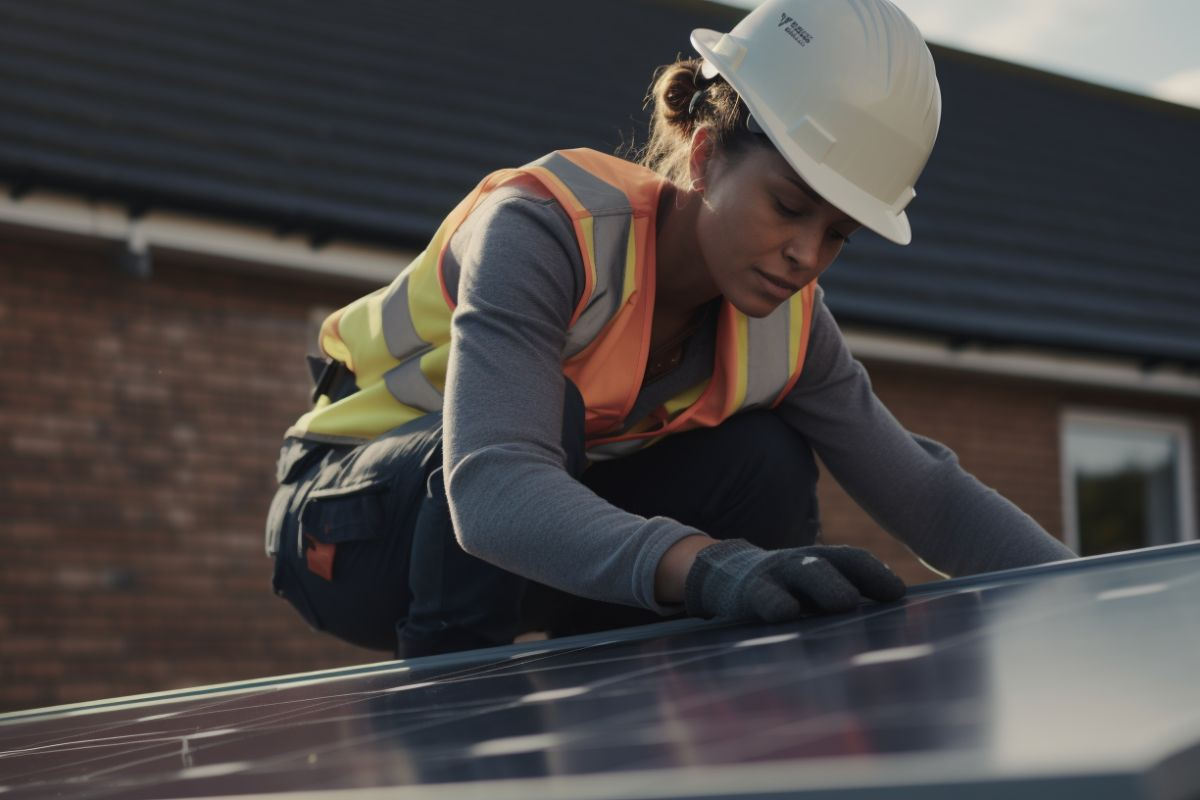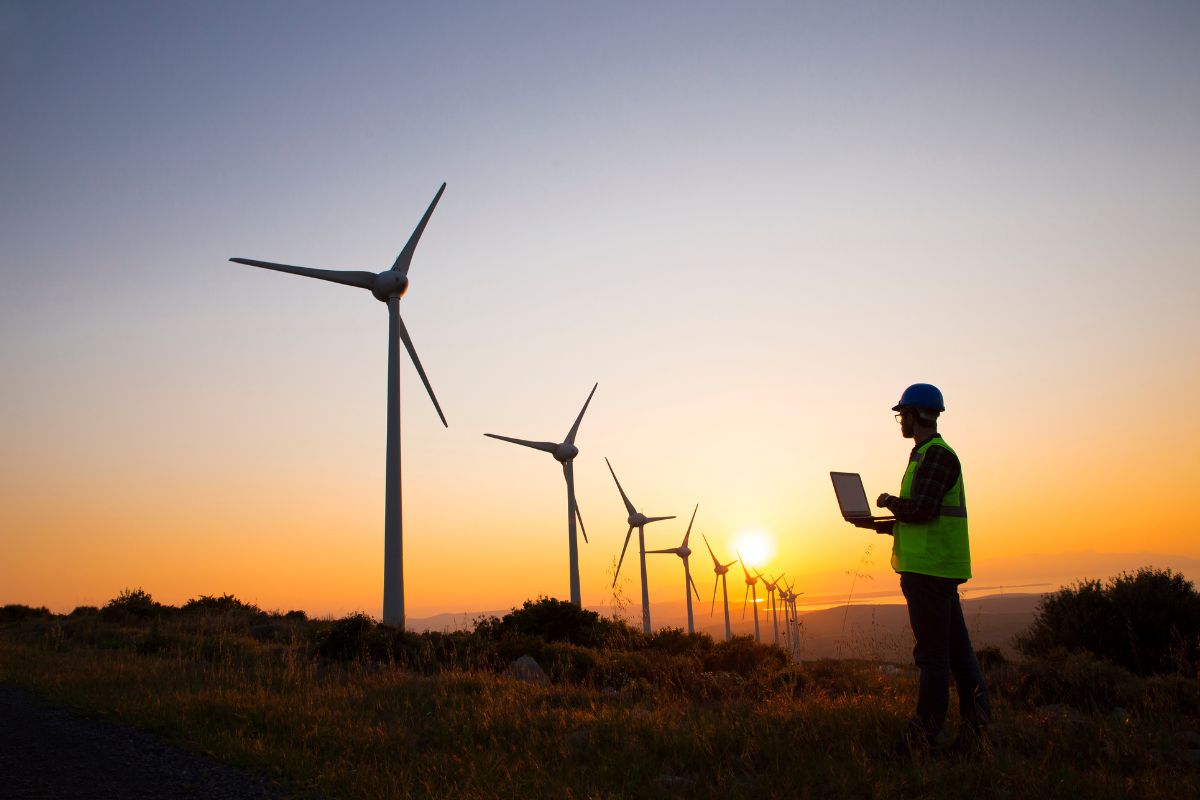Crafting for tomorrow: the urgency for green trade roles
From North Carolina to North Macedonia, to Namibia and beyond, the whole world is talking about ‘green’ jobs. At home and abroad, our collective understanding of the opportunities presented by the energy transition is becoming broader and deeper by the minute, helped by reputable analysis such as LinkedIn’s Green Skills Report, PwC’s Green Jobs Barometer, alongside the growing list of labour market studies from emerging economies.
As our global system shifts trillions of dollars to recasting our economies with lower carbon modes of production, it is creating a surge in demand for millions of heat pumps and solar panels, electric vehicles, charge points, and insulation measures. The move to net zero is happening, slowly and fitfully, and it will change what we consume, how we live, and how we travel.
This mega-trend does not imply uniform change will happen at the same pace and scale everywhere at once. Just like past revolutions - think the telephone, condensing boiler, and Internet - there will be notable winners and losers: countries, businesses, and communities alike. Volatility is inherent, yet can be tempered with steadfast government strategy aimed at ensuring a seamless and equitable transition, a key aspect to keep an eye on in the years ahead.
Analysis from the management consultants Bain & Company suggests that between today and 2030, the transition will create one million new jobs and affect up to a further three million of workers who will need to be reskilled (one eight of the entire workforce) in the UK. Decarbonising energy and home heating alone will create over 500,000 new roles, not least because these sectors account for a significant share of UK emissions.
But all the hype and excitement notwithstanding, the average member of the public is still not hugely aware of the opportunity, and perhaps even sceptical, given that past promises of a jobs bonanza fell short and communities got left behind, or whole subsectors got lost in transition. At the top of the communications funnel, our collective job has to be to build public support and consensus, with clear, pragmatic messaging, focusing on pay, conditions and security. A ‘green’ job is a good job; that’s where the conversation should start.
In the coming decades, every job will become a ‘green’ job, but not all of them are created equal. The road to net zero is paved with wires, bricks, pipes, and rockwool insulation, yet this association remains largely unrecognised. Young people wanting to save the world from climate catastrophe are yet to latch on to the notion that one of the best ways to do so is to become an electrician. This is changing, in part due to concerted efforts to change it.
For it is also the historic decline in the prestige of skilled trade roles which brings us to today, where over half of all school leavers are going to university, while the completion of level three qualifications in electrical installation and plumbing has been declining since 2018 (to around 35,000 and 1,600 respectively in 2022, according to Greenworkx analysis of DfE Vocational qualifications dataset).
This is one of the main reasons why we find ourselves with a skills bottleneck; at a time where demand is surging, to electrify everything, install hundreds of thousands of low carbon heating systems and insulate millions of homes, the workforce is ageing and shrinking. The median age of a Gas safe registered engineer is 55 (average around 46), with a typical retirement age of around 55. Over 50,000 of them need to convert to heat pumps by 2030 if we are going to have a shot at reaching our carbon reduction goals. Struggles in attracting new entrants into industry are also a root cause of a lack of workforce diversity, with women representing approximately 1% of the construction workforce.
Many of the fast growing businesses we meet tell us about the growing challenge of finding talent, due the external market as well as because of resource constraints. The result is a year-on-year cost spiral: paying more for contractors, while quality might even go down as the labour pool shrinks. We have a green skills gap, because new technologies and building methods are adding requirements to established technical roles, but we also have a growing workforce gap. The best businesses are navigating this challenge with aplomb, creating swimlanes for new entrants. Opening up access to these opportunities is the only way in which we will collectively succeed.
At Greenworkx, we have also been fortunate to have partnered with impactful trade bodies, technical schools, Further Education colleges and training providers all over the country on this agenda. Some progress on workforce supply has been achieved through the evolution of green skills bootcamps, through heavily subsidised training (the Home Decarbonisation Skills Training Competition) and the greening of apprenticeship standards.
That said, there is still a lot more to be done and growth could come from new policy proposals such as apprenticeship levy reform, the introduction of a ‘National Skilling Wage’ and/or lifelong learning funding: all measures to ease access to high quality training, providing workers and businesses with the financial stability and confidence to commit to upskilling in mission-critical roles in the low carbon economy.
Employer action is and will remain the linchpin in navigating this evolving job ecosystem, leveraging innovative recruitment methods, adaptable team dynamics, and ongoing on-the-job learning to adapt to shifts in regulation, technology, and safety standards. These elements will define the contemporary workforce mobilised for net zero: dynamic, tech-savvy, and unwaveringly dedicated to purpose and community. There is much to like about this and much to be optimistic about, but acknowledging the enormous task ahead is also key. Not much can be said about ‘green’ jobs that hasn’t been said already, but a lot can be done that hasn’t been done.
Mat Ilic is co-founder and CEO of Greenworkx




